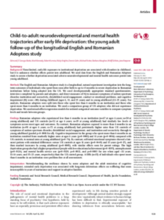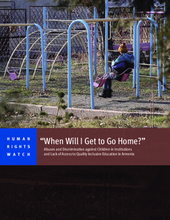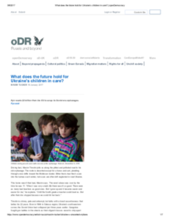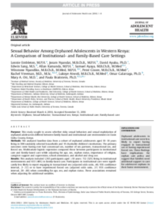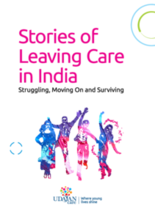Displaying 391 - 400 of 771
This study provides a systematic review of the literature, focusing on the conceptualization and evaluation of continuity.
This study used data from the English and Romanian Adoptees study to assess whether deprivation-associated adverse neurodevelopmental and mental health outcomes persist into young adulthood.
This chapter explores the drivers behind the continued, and in some parts of the world, growing, institutionalization of children.
The Committee's recommendations on the issues relevant to children's care are highlighted, as well as other care-related concluding observations, ratification dates, and links to the Universal Periodic Review and Hague Intercountry Adoption Country Profile.
This report is based on Human Rights Watch visits to five state-run orphanages and ten state-run schools, including six special schools and four mainstream schools, and interviews with 173 people, in eight cities in Armenia.
Three semi-structured focus group interviews were conducted with twelve schoolchildren, aged 13–15 years for the purpose of exploring the knowledge and attitudes towards disability of young people within Moldova.
In this issue of ODR, Maxim Tucker details the deinstitutionalization challenges facing Ukraine
The attached study compared the care environments of family-based care and institutional care to determine if care environment contributed to differences in sexual behavior and/or sexual exploitation of orphaned and separated adolescents.
Using national and international law, court observations, and field experiences, this paper argues a case for deinstitutionalization of children in India, by empowering the families, thereby protecting children's right to a family and preventing abuse and exploitation.
The case studies outlined in this publication draw upon earlier work, which suggested that young people leaving care may broadly fall into one of three groups: those successfully ‘moving on’ from care; those who are ‘survivors’; and those who are ‘strugglers’.

